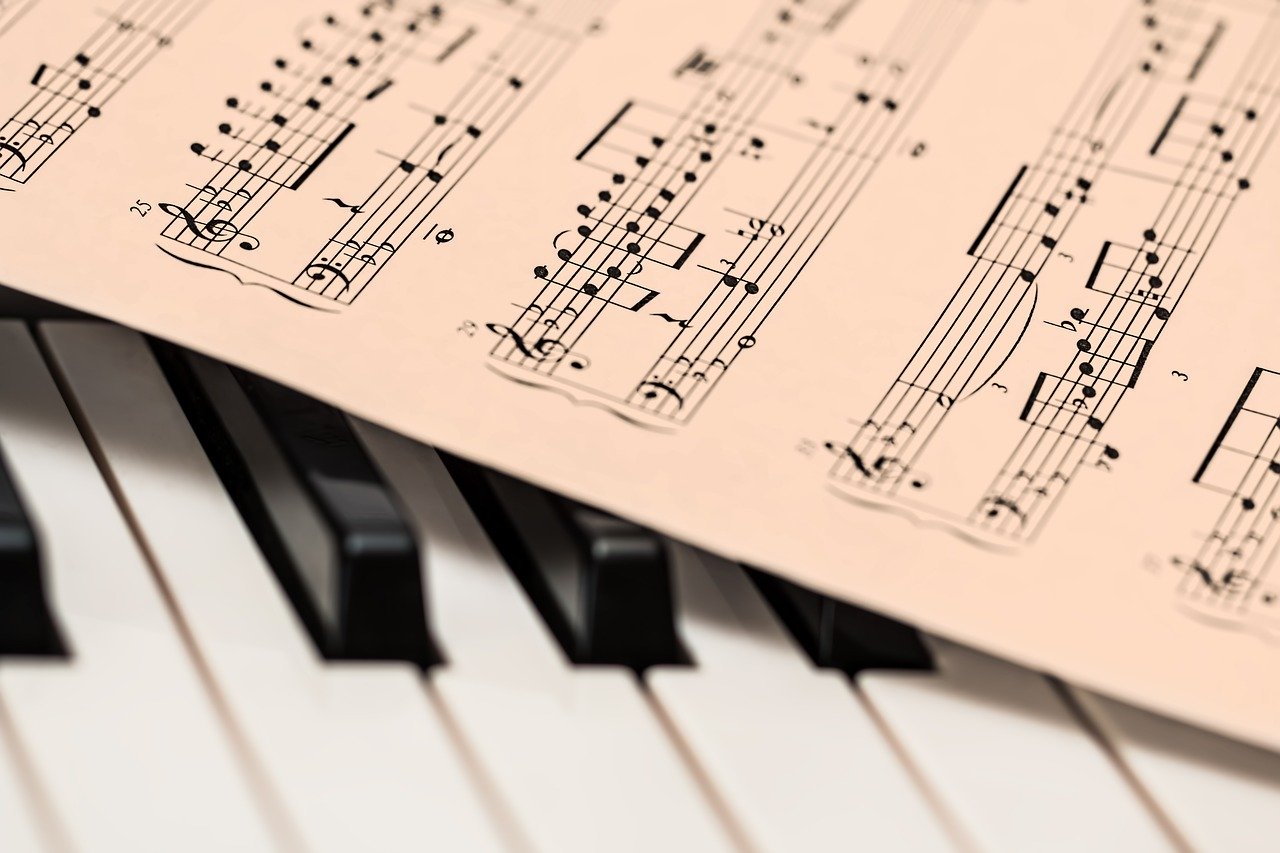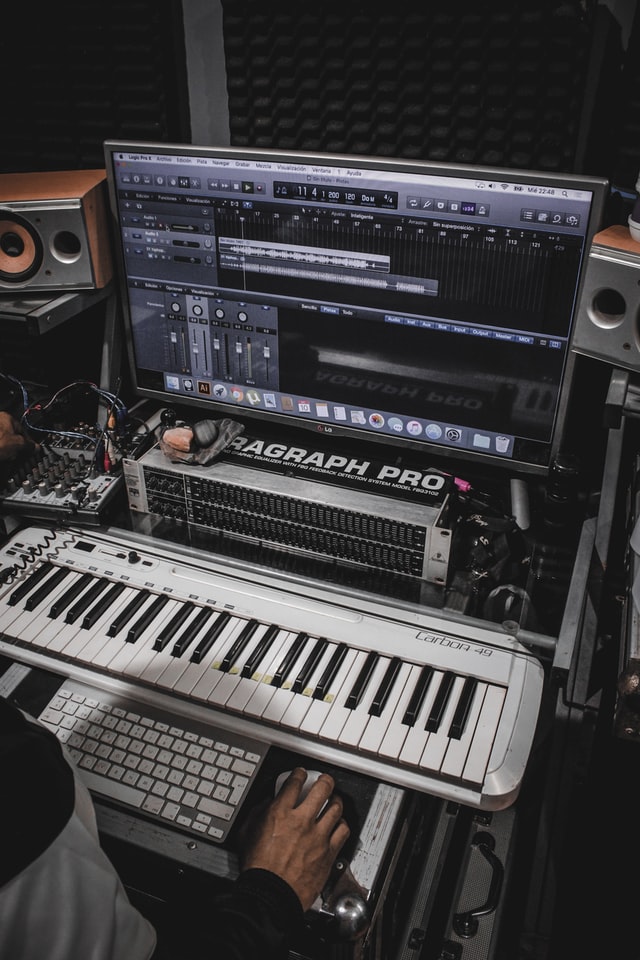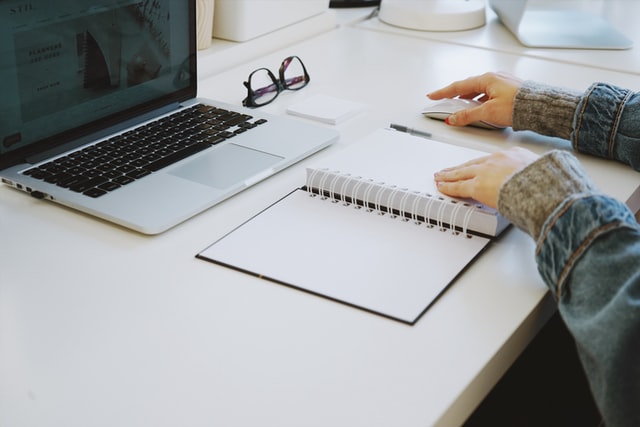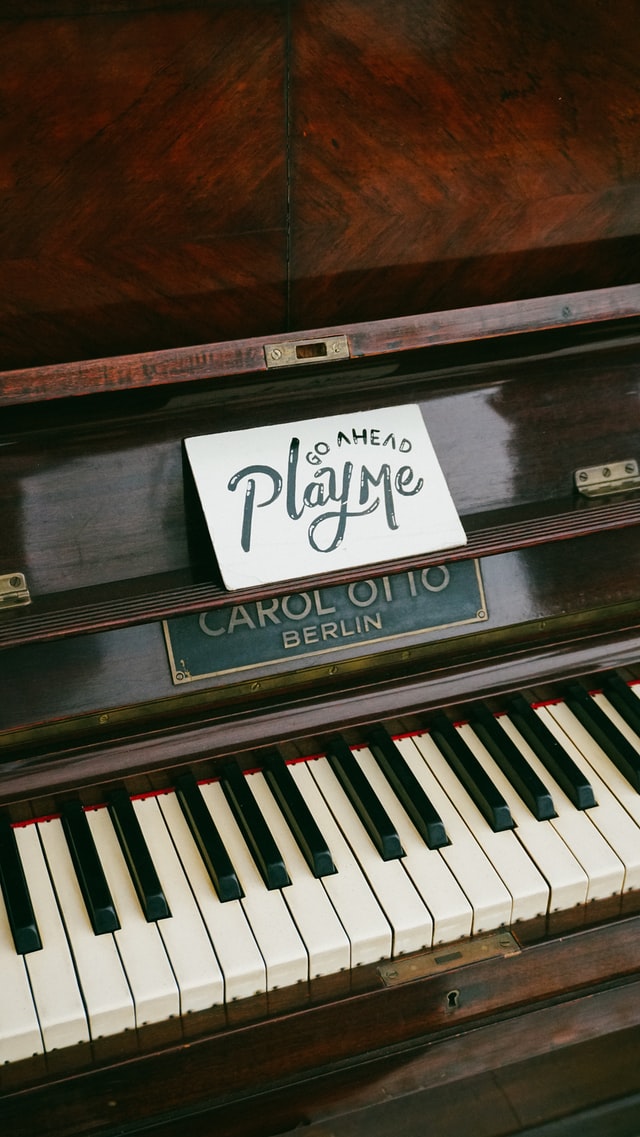Learn piano from home. Is it really possible? There was a time when the only real way to learn how to play the piano was to go somewhere, or, if you were really lucky, to have someone visit you. Times have changed. It is possible to learn piano from home, but only if you know what you are doing.
Learning piano on your own in a home environment is actually pretty common these days, but there are some risks, and you might find that you are doing things wrong, or not learning as effectively. That’s why we’ve put together a guide to learn piano from home. It allows people to work out the risks and the best strategies to ensure home learning is as effective as possible.
We should start by saying that Pianu’s academy offers a complete solution that can allow you to go at your own pace, and learn piano without leaving your home if you don’t want to! You can learn within your browser, either using a keyboard or following our online keyboard. It is efficient to follow one specific course, rather than chop and change the information you are receiving elsewhere and risk mixed messages.
Lessons at Home or Learn Piano from Home Online?
This is one of the big decisions people have to make when deciding they are going to learn piano from home. Some people will only be interested in self-teaching. For an introvert or someone who is socially anxious, learning at home can be one of the best possible solutions, but inviting someone else into the home can cause all the anxiety to flood back.
There are so many advantages to learning piano online using a set course or a guide. The flexibility is very appealing. Some of the best things about online learning following an academy or course include:
- Go at your own speed. If you want to quickly go through a few sections and become a whizz in a shorter time, you can do so. if you have limited time to practice, that’s no problem either.
- No set lesson times. You don’t have to make sure you’re available at a certain time for a visit, or to go to a class. If you want to learn late at night then this is totally fine.
- It’s affordable. Lessons can quickly get expensive. Regularly seeing a teacher can add up to quite a pricey pursuit over time, and piano equipment is expensive anyway, so it could be that you aren’t in a position to have a teacher. Online courses are more affordable.
- You get to stay at home.
- You can focus on the areas you are most interested in. Some teachers can be a little bit more rigid in the way they teach and have set songs for you to work on. This can make it hard to stay motivated.
Learning with a teacher has benefits, too, so people who are still keen to work with a specific pianist or piano teacher to gain their knowledge shouldn’t worry that they are doing anything wrong.
Some of the benefits of learning with a teacher include:
- Being able to ask questions. With an online course, it can sometimes be tough to get answers to specific questions.
- They can check your technique and give you feedback. If you want to learn piano from home on your own it might be harder to find this sort of feedback (though not unachievable).
- Structure. Some people like the structure that a teacher can bring, and may learn better by being told what to do rather than going through things as they see fit.
There are more pros and cons of being able to learn piano from home, and we cover more of these in the rest of this guide.
Learn Piano From Home – Getting The Right Equipment
Some people who learn piano in another location such as going to a teacher’s house, within an educational building or in a group, will be learning using someone else’s equipment. Pianos, keyboards, and digital pianos might be provided for this purpose.
If you are going to learn piano from home you will need to get the right equipment to learn. There are a few ways to do this:
- An acoustic piano. Some of us are lucky enough to have full acoustic pianos within our homes, these can be used to learn how to play, and some people would much prefer this over learning by using a keyboard or digital piano. Of course, acoustic pianos need more maintenance such as tuning.
- Keyboards. Sometimes keyboards can have a bit of a cheap and flimsy feel to them and aren’t ideal for learning, but if you get a good keyboard that has weighted keys or at least touch sensitivity, you might be able to use it to learn piano.
- Digital pianos. This is arguably the most popular way for people to learn piano from home. They allow for the feel of an acoustic piano without the maintenance, and they don’t cost as much as acoustic pianos. They are also portable. Finding a good digital piano can be a very good way of getting the majority of the equipment you need.
There are other pieces of equipment that you might need to learn piano from home. it is recommended that, at some point, you learn to play using pedals. You might need to buy these separately. Also, things like music stands, headphones, and other smaller peripherals. A lot of keyboards and digital pianos are sold as bundles anyway and include all of this equipment.
You shouldn’t let the gear you have be what defines you as a piano player. If you don’t have access to amazing equipment or your piano is just a tiny bit out of tune, you can still learn most of what you need to in order to get started.
Some people use a lack of equipment as an excuse, but the truth is that those who are dedicated to learning how to play the piano tend to find a way. We often share this inspirational tale of a pianist who learned without even having access to a piano. If he can do it…
Learning Piano at Home – Things to Avoid
Time for more of cautionary tales. Keep this list of things to avoid pinned to your desk or wherever you plan to learn. it can be a good way to make sure you aren’t falling into the many traps that self-taught pianists experience.
If you are going to learn to a good standard at home, we recommend avoiding the following:
- Getting your info from too many places. This is something that a lot of pianists and budding pianists can find difficult. There is almost a case of “information overload”. We live in an age where more information is available than there ever has been before, and this can be a very good thing, but when it comes to piano, there are a lot of different courses and methods. It is sometimes best to pick a lane and follow it through, rather than getting 10 YouTubers and 5 different courses.
- Not focusing on hand technique and posture. It’s too easy to just start trying to play the notes and memorize where they are, without even thinking about the fingers you are using and the position your hands are in. This guide to the correct posture is a very useful tool. The reason this is such a big deal for self-teaching is that there may not be anyone to correct you.
- Never recording yourself or showing others. This is a problem for similar reasons to the hand posture issue. If you have a friend who can play piano, make sure you are sending them videos of your progress. They’ll be able to give you feedback or tell you if you are getting things right or wrong. If you’re pretty tone-deaf, you might be even playing the wrong notes.
- Trying too much, too fast. One of the great ways to learn piano from home is to go at your own pace, and you might think that you are good at going through things quickly. The truth is that we can’t all devote loads of time to it, and if we do, rushing through lessons might lead to the knowledge being patchy at best.
There are many different ways to learn, and though we’re not here to tell you what is right and what is wrong, it is very important to try and make life easier for yourself. Keep an eye out for all of these errors to ensure that you don’t end up making silly mistakes on your journey to becoming a pianist.
Learn Piano From Home Tip – Get Organized
Here’s one of our top tips to learn piano from home more effectively and efficiently. Learning is far easier if you approach it in an organized manner. Imagine if you started a course at a school or college and the teacher made it up as they went along. You would know that you were not going to learn as much.
This is the same with learning to play the piano. It is important to have some form of structure. If you just take a casual approach to it, it is likely to take you a lot longer.
The easiest way to do this is to follow a specific course with step-by-step guides. This will have been planned out in advance, and the way of building knowledge means you won’t be skipping sections or revisiting them based on things you don’t understand.
The Pianu academy builds your knowledge from the ground up. Even if you are an absolute beginner, you can approach it in a way that lets you learn piano from home even without prior experience of playing. We start with the basics and guide you through to the point where you are an established player.
A lot of people who are serious about playing the piano but don’t want to leave the house will find that they achieve the best results by gathering information first. As well as access to an academy or piano course, there is no harm in getting more material like books and especially visual aids. We love printable chord charts, and find these can be a really helpful reference point. You can gather and plan a folder of your learning materials, either digitally or in a physical format, to stay organized.
Learn Piano From Home Tip – Establish What Type of Learning Style You Have
This is so often overlooked. Different people learn in different ways. There’s no way around it, there are many different learning styles. Over the years, you might have already worked out what sort of learning materials you respond to. For example, some people struggle to take in the written word, whereas others excel at seeing things drawn and written down.
Learning styles are no myth. This excellent guide is aimed at those who are teaching, but does a really good job of explaining how different styles play a part in the way people will learn. You will see from the “VARK” chart in the guide, that all of the different sensory methods of learning are used to some extent when playing the piano.
For some people, video lessons will work amazingly. For other people, actually getting their hands on the piano as quickly as possible will be best, others will enjoy reading loads about it before they attempt to play something.
Learning piano from home is tough, because it requires such a lot of multi-tasking skills. You need to do multiple things at once to be able to play the piano, and it can take a long time to adjust to this. It might even feel a little bit unnatural at first.
Learn Piano From Home Tip – Persistence
Whatever learning style, you will need some persistence. In fact, you will need a lot of it. We’ve covered this in some detail on our recent post about piano frustrations. Be warned that it is not easy to pick up the piano, and there will be some frustrations along the way.
It can sometimes help to just take the pressure off yourself. Allowing you to learn at your own pace, and not having a pressing deadline in mind. If you are just learning for enjoyment then there is no time range on when you need to be able to play a certain song, for instance.
It’s hard to teach persistence, especially to yourself. It is something of a mental game you might have to play with yourself. Try to keep the new lessons as interesting as possible to learn piano from home without it becoming a bore.
Learn Piano From Home Tip – Play With Others
Once you reach a certain level of ability, where you are pretty comfortable with a lot of the notes, chords and piano techniques, you should start to play with others. You can invite people to come and see you who know how to play the piano. If you have musical friends, this might just happen organically.
This can be great for a few reasons. Firstly, it acts as a bit of a reward. if you’ve played on your own for a while, learning a song with other musicians can be a fun way to use this new knowledge. Whether they are playing another instrument or even singing, it can be a fantastic thing to do for your own motivation.
It can also be a good way to work on timing. This is something that a lot of people who learn piano from home gloss over. Playing in time can be tough, especially with complex songs, but with other musicians there, you are more likely to learn how to keep up with them.
Playing piano with others there is also a way to get the elusive feedback so many people find difficult when self-teaching. It is best to play with another pianist present, as they’ll be able to show you how to play things correctly and pick up on any errors in your technique.
Choosing a Piano Course – How to Pick The Right Course
A piano course, such as the Pianu academy, is a good way to ensure that you are not missing out on any knowledge. It can also feel a lot less lonely. Having a structure there and something to follow should be a blessing, too, as it can ensure you do not get sidetracked or spend a long time on learning knowledge which simply isn’t that important to your piano journey.
A piano course should be suited to your level of ability. If you have already had some training such as piano lessons, find a course that is suited to your ability as an intermediate. If you know nothing, go for a beginner’s course and build your knowledge from the ground up.
Some great features include interactivity, to make sure that you aren’t just hoping you’ve got things right. The Pianu academy can actually show you when you have played notes correctly and give an experience that is unlike just sitting on your own at a keyboard, grinding away. Any MIDI-USB keyboard can be linked with your browser to work in this interactive method.
If you are looking to venture into one specific style of piano, for instance, playing jazz piano, we don’t recommend specializing early. The basis of your knowledge and how a piano works should be the same no matter which genre you plan to explore in the future. The beginner courses should focus on things like learning the notes and your technique before you expand into areas like specific jazz methods.
Eventually, once you have completed a beginner piano course, you can learn piano from home in the styles you want to. There are many great courses aimed at specific genres, but don’t specialize too early.
Beware of the Too Expensive (and Too Cheap)
Sound too good to be true? It probably is. You don’t have to spend a fortune to learn how to play the piano, and the cost can be manageable, especially if you split your purchase into a monthy subscription, for example.
There are some courses out there that are very cheap, and promise the earth. However, a lot of them feature huge upsells, and try and get you to spend more money constantly. They may also have low production value and generally be disappointing for those who want a detailed course. We can’t speak for every piano course out there, but be sure to check the reviews before you delve in.
Likewise, we don’t believe it should cost thousands to learn how to play the piano. Don’t get sucked in and spend a fortune just because of promises to turn you into a piano virtuoso! The same information is likely to be available elsewhere, and much more affordably.
Summary – Can I Really Learn Piano From Home?
There is no single best way of learning to play the piano. As this guide has covered, different methods and techniques suit different people. We all have our own styles of learning, and some people will find it much easier to attend classes and lessons. For many people, though, learning from home is ideal.
Even if you like to learn in classes, it is still important that you have a reference. If the learning only takes place for one hour a week then you are likely to quickly forget. Being able to learn piano from home, or at least brush up on your knowledge, can avoid this becoming a problem.
We live in the age of the DIY musician. When it comes to learning and even when it comes to recording and producing, more can be done from home than ever before. Though there are pros and cons, as we’ve covered in this guide, there are plenty of self-taught pianists who have gone on to be successful, both as a hobby and even in bands or other piano professions. Time to embrace self-teaching!













